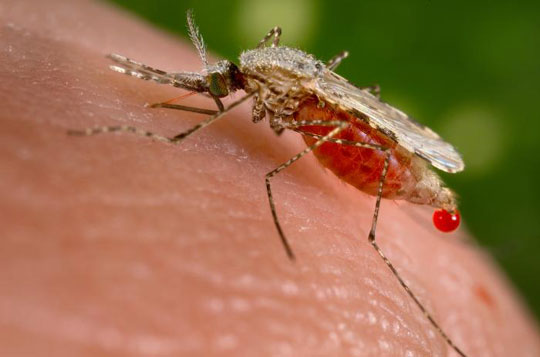According to Vietnam News Agency reporter in the United Nations, in the Global Report on malaria drug resistance in the period 2000-2010, announced on November 18, the World Health Organization (WHO) warned only 34 % of countries with malaria epidemic perform periodic anti-malaria drug testing as instructed by WHO.

Drug resistance to malaria is spreading, (Artwork: Internet)
The agency requires countries to be more cautious in testing to soon detect drug resistance in anti-malaria treatment.
WHO said Artemisinin is currently the most effective antimalarial drug, with the cure rate reaching more than 90%. However, in February 2009, this drug resistance appeared in the border area between Cambodia and Thailand and there are signs that Artemisinin resistance has spread to the Thai-Myanmar border. endeavors to block.
This raises concerns that antimalarial resistance may spread from Asia to Africa, a phenomenon that has occurred for some other drugs in the 1960s and 70s.
The director of WHO 's Global Antimalarial Program , Dr. Robert Newman, emphasized that resistance to Artemisinin is a " world awakening " that it should prevent the spread of this resistance by strengthening testing and protection of Artemisinin-based combination therapy (ACT) as the only effective treatment for malaria.
Professor Nicholas White of the Mahidol-Oxford Research Center in Bangkok said that antimalarial resistance as well as cancer, must be detected at every level. WHO is working on developing a Global Plan to Prevent Artemisinin drug resistance, which is expected to be published in January 2011.
 Green tea cleans teeth better than mouthwash?
Green tea cleans teeth better than mouthwash? Death kiss: This is why you should not let anyone kiss your baby's lips
Death kiss: This is why you should not let anyone kiss your baby's lips What is salmonellosis?
What is salmonellosis? Caution should be exercised when using aloe vera through eating and drinking
Caution should be exercised when using aloe vera through eating and drinking